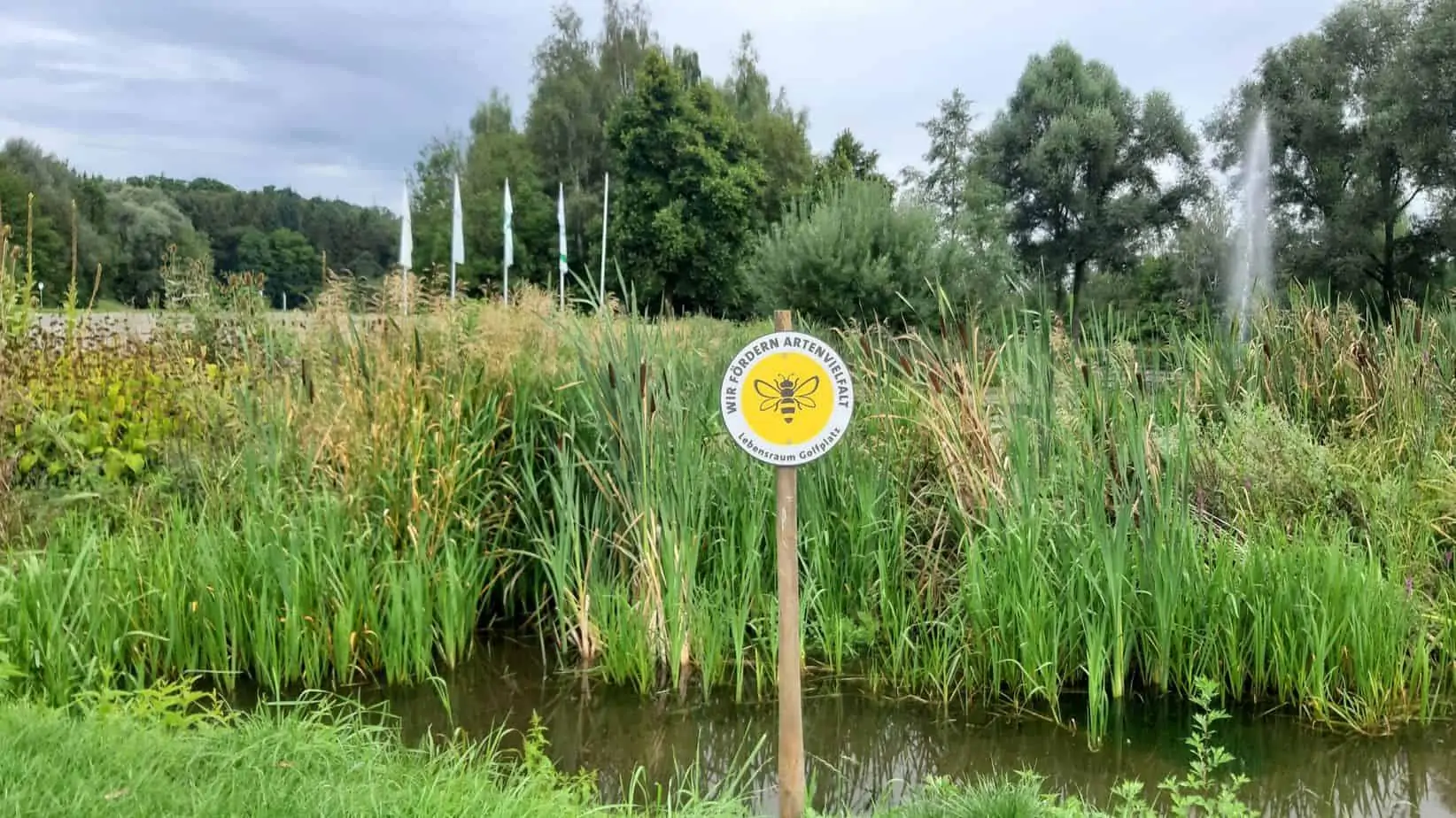Political summer tour on golf courses
One might think a workshop group is on the way. They visit GC Ulm and inspect first the flowering meadows near the clubhouse, talk about amphibian migration and nutrient-poor areas of grassland, finally ending in front of a visually unspectacular area where the large burnet is promoted; a plant, in turn, den burnet blue, an extreme rarity among butterflies Ulrich Müller from the Donau-Iller regional association of the BUND.
The group we are talking about here is made up of Green Party politician Dr. Andre Baumann, ministry employees from Baden Württemberg, golf association officials, conservationists, beekeepers, greenkeepers, golfers. Anyone who takes a closer look at the constellation comes to the realization that a group like this would never have met so harmoniously on a golf course five years ago.
Politics meets golf
The situation has changed: politics is affecting golf courses because they offer many areas that are close to nature. The golf courses work together with environmental protection associations such as the BUND or the State Association for Bird Protection because they have recognized that sport can only survive in harmony with nature. And the environmental and nature conservationists are happy to help on the golf courses because, as Müller puts it in Ulm, “there they encounter rarities that hardly exist anywhere else.”
That’s why Andre Baumann, former Secretary of State for the Environment in Baden-Württemberg and now the state’s representative to the federal government, is currently on a summer tour of golf courses, which will end in Ulm. He was at the Solitude Golf Club in Stuttgart, at the Domäne Niederreutin Golf Club and now he’s here. Anyone who listens to him will notice: the man is a specialist. He is a biologist, was for a long time state chairman of the German Nature Conservation Union, and has now been nominated by the Green Party as a candidate for the state parliament. There are quite a few in the region who believe that this could be the next environment minister in Baden-Württemberg.
Dr. Andre Baumann (2nd from left), authorized representative at the federal government, with the President of the Baden-Württemberg Golf Association, Otto Leibfritz (3rd from right), at GC Ulm
Communication prevents too much bureaucracy
“Our major goal is to protect biological diversity in Baden-Württemberg,” explains Baumann. The golf courses impressed him “because they were so different” and because he recognized the potential they offer. “One of the cornerstones of our goals is that we talk to each other and not about each other,” he says to the people in front of him. Apparently, this works at GC Ulm, as can be seen from the two newly designed greens, the approval of which went through official channels without any problems, because the representatives of the golf course, the lower nature conservation authority and the nature conservation associations involved understand each other. “Once you have built up trust, you can also rebuild something unbureaucratically”, “it is exemplary how this works here”, sums up the politician.
The topic of species richness and biodiversity has arrived on the golf courses, which is also confirmed by the President of the Baden-Württemberg Golf Association, Otto Leibfritz . “Almost all clubs have realized what needs to be done,” he states. His colleague Arne Malte Uhlig from the Bavarian Golf Association adds: “Do good and talk about it, that’s the goal”. At the moment it is not clear enough to the public that species-rich areas have shaped the picture on golf courses beyond the fairways for decades.
High quality greens on the sports field are important for golfers
“Nevertheless, of course, we are first and foremost a sports field,” says Dr. Gunther Hardt, who, among other things, oversees the Golf & Nature certification program for the German Golf Association, in which all three of the golf courses visited participate. The combination of high quality greens and fairways, resource conservation and increasing biodiversity must be the focus of the work. “Now the topic also fits into the spirit of the times”, states the Vice President of the DGV Achim Battermann . This is one of the reasons why other state associations will also be pushing for intensified talks with representatives from politics, environmental organizations and golf. Hesse and Schleswig-Holstein are already on the right track.
At the end of the visit to the golf course, the politicians, association officials and nature conservationists are back together. It is a picture of unity, also of determination to do something positive in terms of species protection on and with the golf courses. It’s an image that actually seems unspectacular, but it’s not – because interests have come together here that were considered irreconcilable ten years ago.









